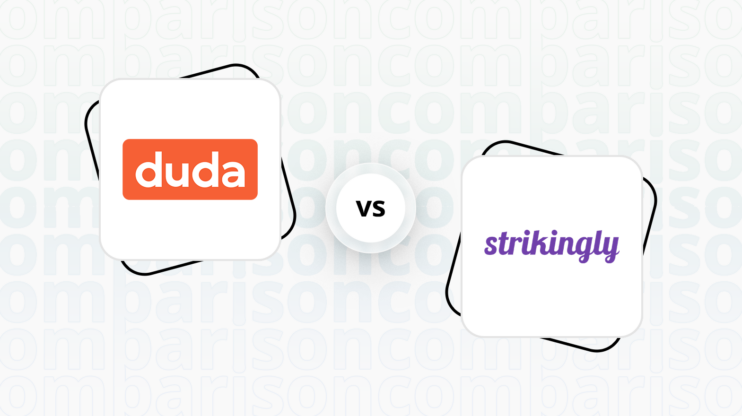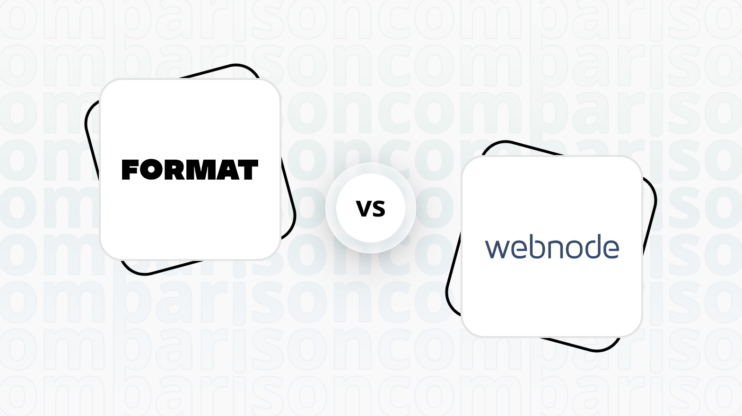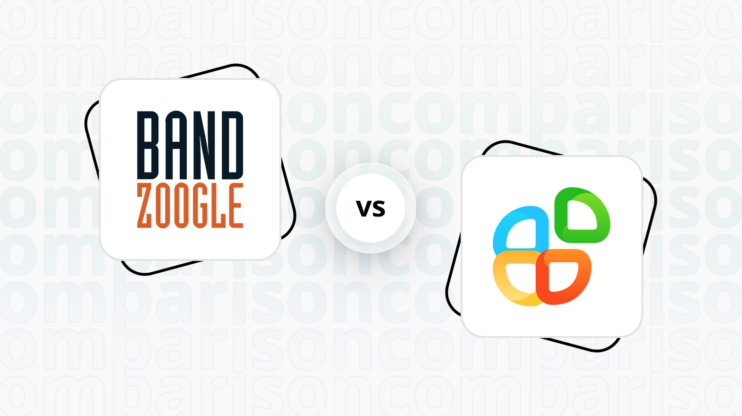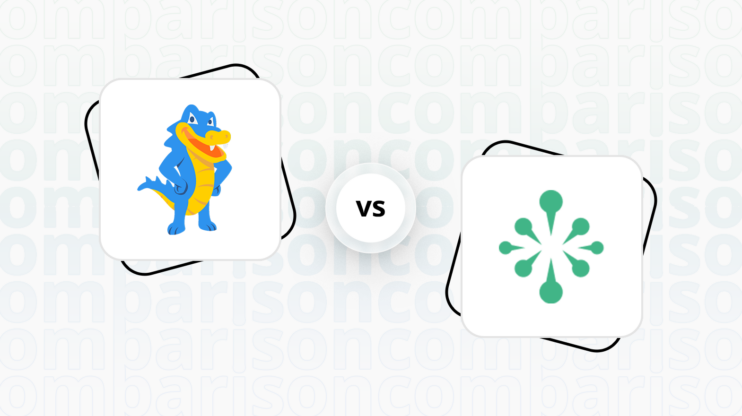Shopify vs Webnode: Final verdict
Shopify and Webnode cater to different needs, making them suitable for distinct user bases.
-
Shopify (Overall Grade: 8.1/10)
is a robust ecommerce platform designed for businesses looking to scale. It excels in providing comprehensive ecommerce features, advanced marketing tools, and strong security measures. Shopify’s templates are professional and ecommerce-focused, making it ideal for online stores. However, it has a steeper learning curve, which might be challenging for beginners. When comparing Shopify vs Webnode, Shopify stands out for its extensive integrations, superior hosting quality, and advanced AI capabilities. -
Webnode (Overall Grade: 6.5/10)
is a user-friendly website builder perfect for beginners and small businesses. It offers a drag-and-drop interface, making it easy to create websites without coding knowledge. Webnode provides a variety of customizable templates and basic ecommerce features, but it lacks the advanced functionalities and scalability of Shopify. In the Shopify vs Webnode comparison, Webnode is more suitable for users who prioritize ease of use and affordability over advanced ecommerce capabilities.

|

|
|
|---|---|---|
|
Design functionalities & templates |
8.2 |
7.1 |
|
Ease of use |
7.5 |
8.0 |
|
Ecommerce |
9.2 |
6.3 |
|
Website Editors |
7.9 |
7.3 |
|
Product testing options |
8.1 |
5.3 |
|
Price |
8.2 |
7.7 |
|
Hosting quality |
9.0 |
6.3 |
|
Website speed optimization |
7.8 |
6.1 |
|
Plugins and integrations |
8.7 |
6.8 |
|
Marketing features |
8.8 |
5.5 |
|
Customer support |
8.6 |
5.3 |
|
Security |
9.0 |
7.7 |
|
AI capabilities |
7.9 |
5.3 |
|
User Management |
6.5 |
6.9 |
Which one is the best for ecommerce: Shopify or Webnode?
 9.2
9.2
 6.3
6.3
Verdict
: Shopify is the superior choice for ecommerce, offering a robust set of features and scalability for growing businesses. Webnode, while user-friendly and suitable for beginners, lacks the advanced capabilities needed for larger, more complex online stores.
-
Shopify
: Shopify excels in the ecommerce sector with its extensive payment gateways, including Shopify Payments, offering global transaction flexibility. It’s adept at handling a large volume of products, ideal for growing online stores. Its ecommerce features, from advanced analytics to versatile shipping options, are tailored for vigorous business needs. Shopify’s ecommerce score: 9.2. -
Webnode
: Webnode provides a simpler, more straightforward approach to ecommerce, making it a good option for beginners or those with smaller stores. However, its limited customization options and basic analytics may not meet the needs of larger businesses. Webnode’s ecommerce score: 6.3.
Which one is the best for informational and business websites?
 6.8
6.8
 7.2
7.2
Verdict
: When it comes to creating informational and business websites, Webnode has a slight edge over Shopify due to its user-friendly interface and ease of use. However, Shopify’s robust platform and professional templates make it a strong contender for those who might also consider ecommerce functionalities.
-
Shopify
: Shopify, primarily known for its ecommerce capabilities, can be used for informational websites but may feel overly complex for such purposes. Its professional templates and robust platform are excellent, but the learning curve can be steep for beginners. Shopify scores 6.8 in this category, reflecting its secondary focus on non-ecommerce sites. -
Webnode
: Webnode excels in creating simple, user-friendly informational websites. Its drag-and-drop interface and customizable templates make it easy for beginners to create professional-looking sites without any coding knowledge. Scoring 7.2, Webnode is particularly suitable for users who prioritize ease of use and quick setup over advanced ecommerce functionalities. When comparing Shopify vs Webnode, Webnode stands out for its simplicity and accessibility.
Shopify vs Webnode: Detailed comparison
Design functionalities & templates
Design FunctionalitiesRepresents how well each platform allows for creative design and customization of websites.Score Components:
- Template Variety (30%): Range and quality of design templates.
- Customization (30%): Flexibility and options for design alterations.
- User Interface (20%): Ease and intuitiveness of the design process.
- Responsiveness (10%): Adaptability to different devices and screen sizes.
- Innovation (10%): Unique design features and tools.
 8.2
8.2
 7.1
7.1
🏆
Winner: Shopify.
If you’re looking for a platform that offers more professional and ecommerce-focused design functionalities and templates, Shopify is the preferred choice.
Shopify’s templates are sleek and professional, ideal for ecommerce sites. They offer a sophisticated look with a focus on online stores. While the free template selection is not large, Shopify’s premium theme store provides a variety of industry-specific options, offering advanced features for a strong brand presence.
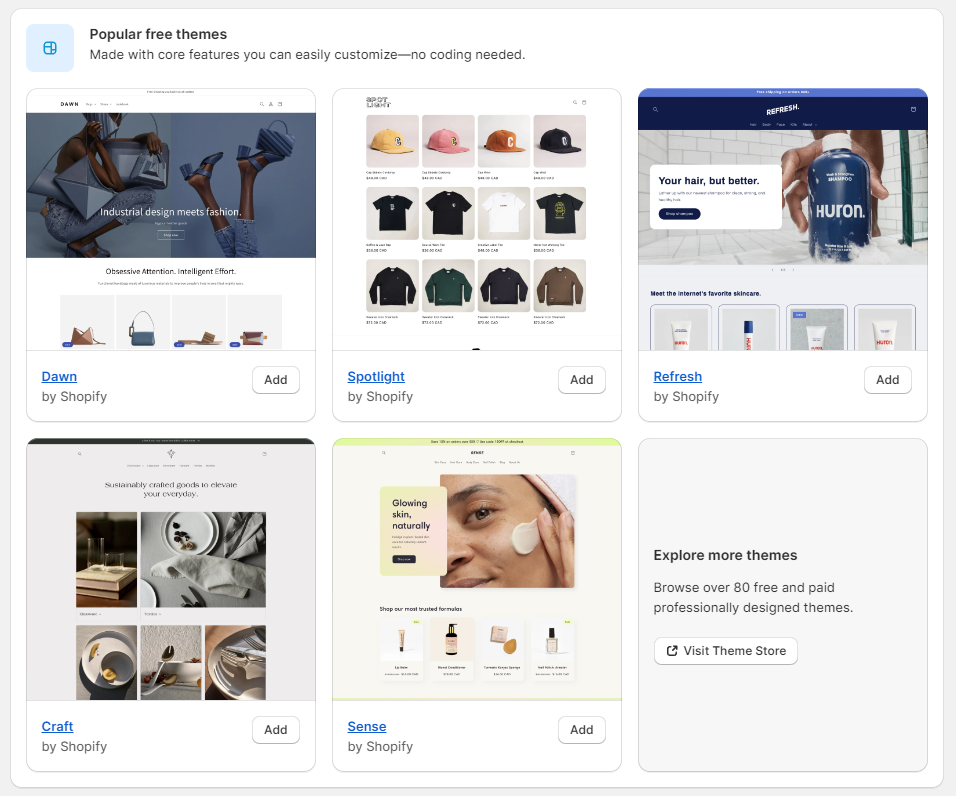
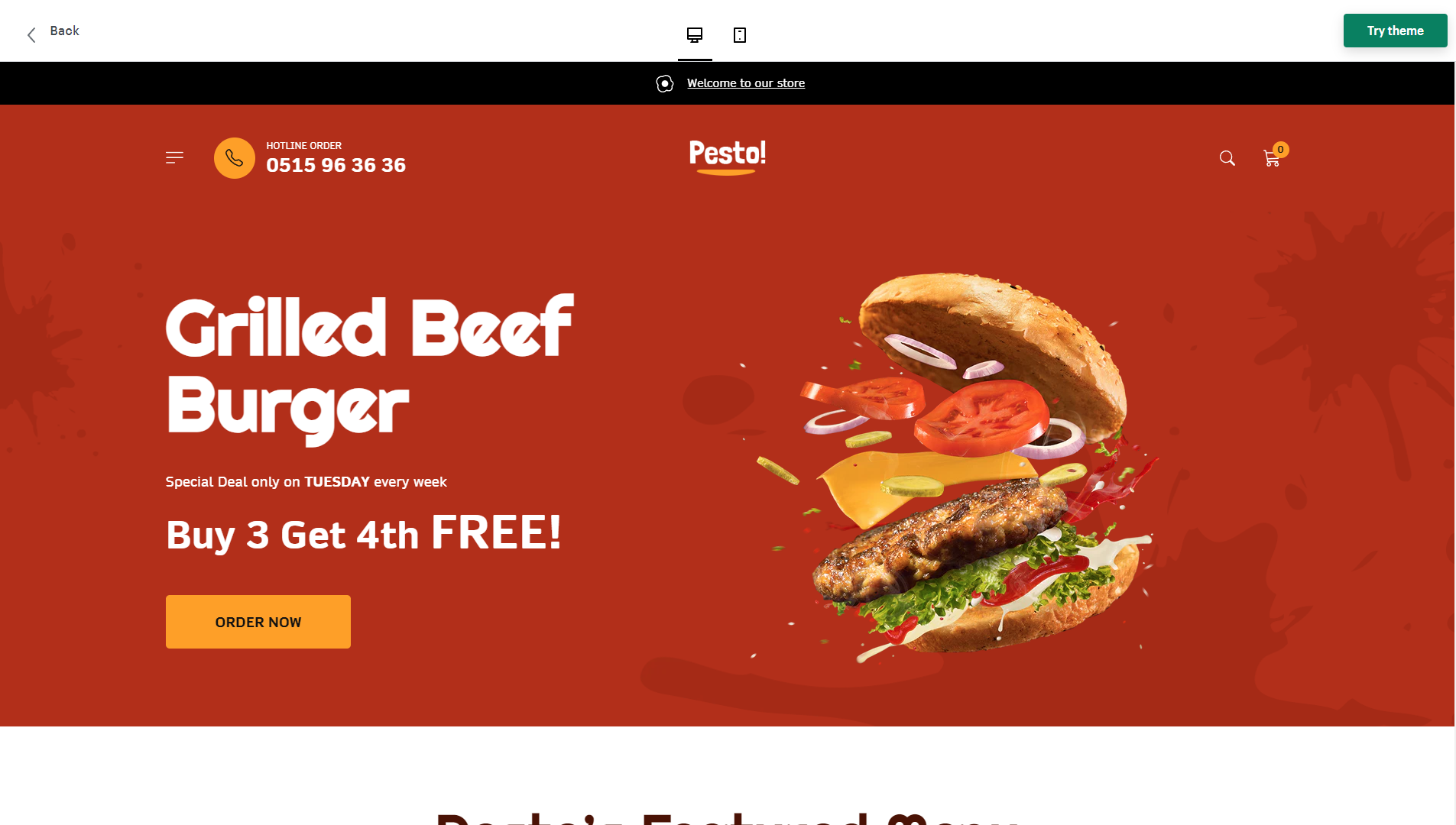
Compared to Shopify, Webnode offers a variety of website templates designed for different purposes, from business and portfolios to restaurants and travel. These templates are customizable and responsive, ensuring they display well on any device. While an exact number isn’t available, Webnode provides a wide selection to cater to diverse website needs.
Get a head start on website creation with AI
Create a custom website tailored to your business needs 10X faster with 10Web AI Website Builder!
Ease of use
Ease of useReflects the platform’s overall user-friendliness.Score
Components:
- Learning curve (40%): Quickness and ease of getting started.
- Interface design (30%): Simplicity and intuitiveness of layout.
- User guidance (20%): Quality of tutorials and support.
- Flexibility (10%): Adaptability to various user skills.
 7.5
7.5
 8.0
8.0
🏆 Winner: Webnode
. Scoring 8.0, Webnode is praised for its user-friendly website building platform, making it suitable for beginners without coding experience. Shopify, with a score of 7.5, offers a robust platform but with a steeper learning curve, especially for those new to ecommerce. If ease of use is a priority, Webnode is the clear winner in this category.
Learning Resources
🏆 Winner: Shopify
. While both platforms offer solid learning resources, Shopify goes a step further with its wide array of detailed tutorials and active community forums, making it easier for users to learn and adapt.
For ecommerce
EcommerceMeasures the platform’s effectiveness in supporting online business activities.Score Components:
- Ecommerce themes and templates (20%): Variety and design of templates.
- Product management (25%): Ease of managing and organizing products.
- Payment options (25%): Variety and convenience of payment methods.
- Ecommerce features (20%): Features for managing an ecommerce store.
- Integration (10%): Compatibility with external e-commerce tools and services.
 9.2
9.2
 6.3
6.3
Shopify is a leading ecommerce platform that provides a comprehensive set of features for online businesses. It offers tools for creating and customizing online stores, managing products, processing payments, and handling order fulfillment. On the other hand, Webnode’s e-commerce features include an online store builder, product management tools, various payment options, and basic analytics. However, users may find its customization options limited compared to other platforms, and transaction fees could impact profitability. Integration capabilities may also be constrained, and scalability might be a concern for larger businesses.

|

|
|
|---|---|---|
|
Ecommerce themes and templates |
8.2 |
6.5 |
|
Product page customization |
8.5 |
7.0 |
|
Payment processing and commissions |
8.8 |
6.8 |
|
POS capabilities |
8.1 |
4.0 |
|
Payment gateways |
9.5 |
7.0 |
|
Product numbers |
9.0 |
5.5 |
|
Additional ecommerce features |
9.1 |
6.0 |
Shopify ecommerce features:
- Comprehensive store builder
- Shopify Payments and other gateways
- Advanced inventory management
- Multi-channel selling
- Abandoned cart recovery
- Detailed analytics and reporting
Webnode ecommerce features:
- Shipping options
- Payment gateway integrations
- Order management
- Coupons and discounts
Ecommerce themes & templates
Shopify offers about 150 modern responsive themes for creating a virtual storefront, ensuring a good look on both desktop and mobile devices. While some themes are free, others cost between $170 to $380. In contrast, Webnode offers ecommerce-specific templates designed for creating online stores. These templates typically come with features such as product showcasing, shopping cart functionality, support for various payment gateways, and customization options. However, users should be mindful of potential limitations such as customization restrictions, feature limitations based on plan tiers, transaction fees, and integration limitations when choosing a template and plan for their ecommerce website on Webnode.
Product page customization
Shopify has a limit of three options per product, totaling 100 unique variations. This limit may not pose a significant constraint, and it is suggested that for products with numerous options, creating separate listings on Shopify can be a more manageable approach. While Shopify offers titles, descriptions, and image galleries with zoom effects, customization options like adding ribbons, size charts, and wishlists are not as straightforward. However, Shopify distinguishes itself with additional features through its extensive library of extra apps, offering functionalities like reviews, Facebook stores, eBay item importers, and a unique Augmented Reality feature for an enhanced customer experience.
On the other hand, Webnode provides users with extensive customization options for product pages, allowing for the creation of visually appealing and informative displays. Through customizable content blocks, product images and galleries, and tailored product descriptions, users can effectively showcase their products. Additionally, features such as customizable call-to-action buttons, product variations, and SEO optimization contribute to a seamless and optimized shopping experience.
Payment processing
When it comes to payment processing, Shopify offers payments with typical charges of
2.9% + 30¢
per online transaction on basic plans, and lower fees for higher-tier plans. However, it adds extra fees for using other payment gateways. Shopify Payments is Shopify’s own payment processing gateway. It allows merchants to accept credit card payments directly on their store without having to integrate third-party payment providers. This simplifies the payment process, reduces transaction fees, and streamlines the handling of finances.
Webnode website builder supports various payment gateways, including popular options like PayPal and Stripe, for online transactions. While Webnode itself doesn’t charge commissions on transactions, payment gateways may have their own fee structures. Webnode primarily focuses on facilitating online transactions and doesn’t provide native POS capabilities, although integration with third-party POS solutions may be possible. For the latest information on supported payment gateways, transaction fees, and POS integrations, users should refer to Webnode’s official documentation or contact their customer support.
Website Editors
Website EditorsEvaluates the platforms’ website building and editing capabilities.Score Components:
- Customization tools (40%): Range and power of editing features.
- Editor usability (30%): User experience within the editor.
- Design flexibility (20%): Freedom in layout and design changes.
- Update and maintenance ease (10%): Simplicity of updating and maintaining the site.
 7.9
7.9
 7.3
7.3
🏆
Winner: Shopify
. Shopify’s editor, with a score of 7.9, excels in providing a streamlined, ecommerce-focused editing experience. It’s particularly beneficial for users who prioritize efficient management of online stores. The editor is straightforward, making it easy to add products, manage inventory, and set up payment methods. Shopify’s editor is optimized for sales and business growth, with built-in tools specifically designed for ecommerce businesses.
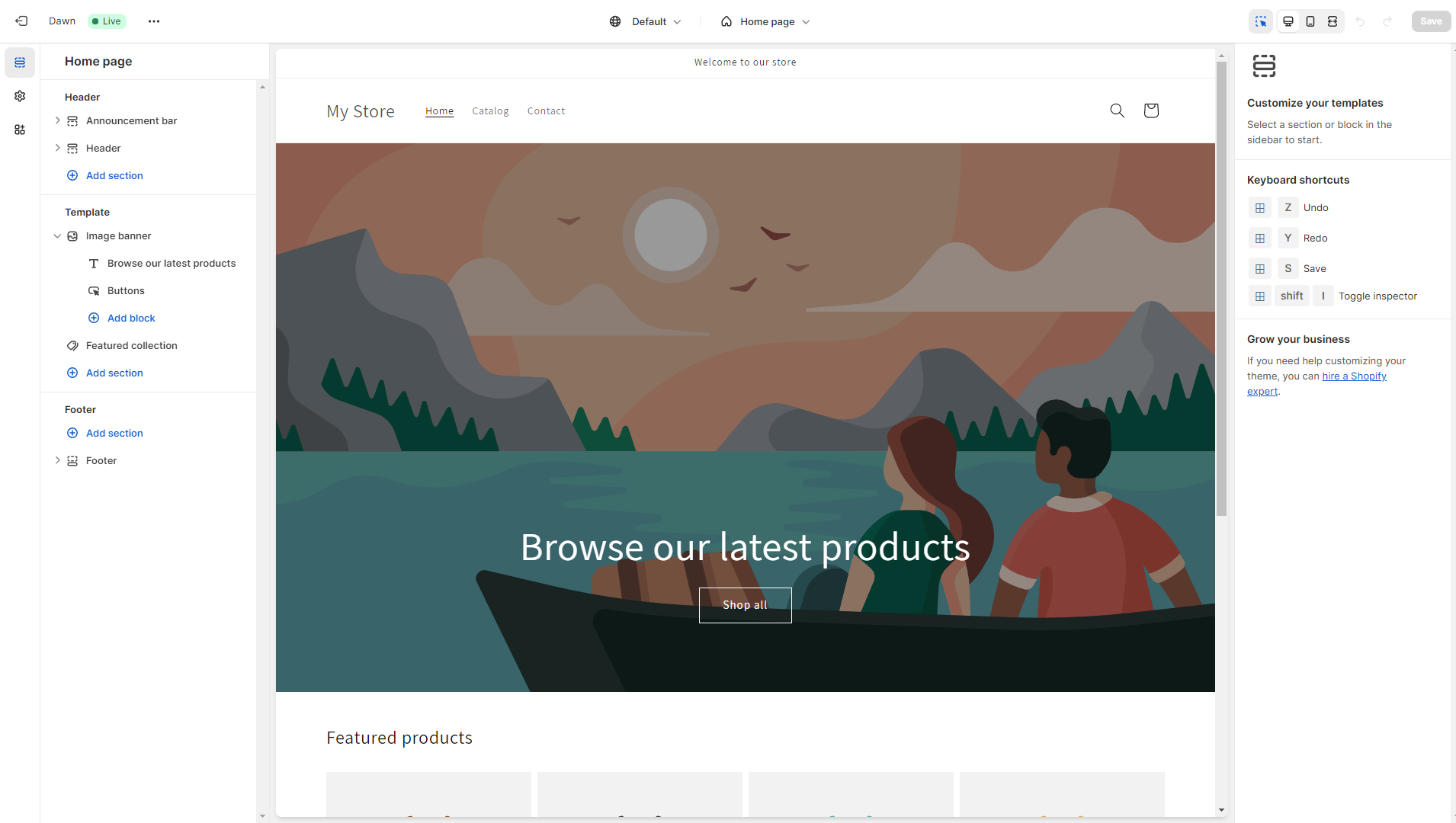
Webnode’s editor, scoring 7.3, features a user-friendly drag-and-drop interface with customizable templates, enabling users to easily create professional-looking websites without coding skills. The editor offers responsive design capabilities and multilingual support, catering to diverse audiences across different devices and languages. However, it may not offer the same level of ecommerce optimization as Shopify.
Mobile editor/app
 8.0
8.0
 5.5
5.5
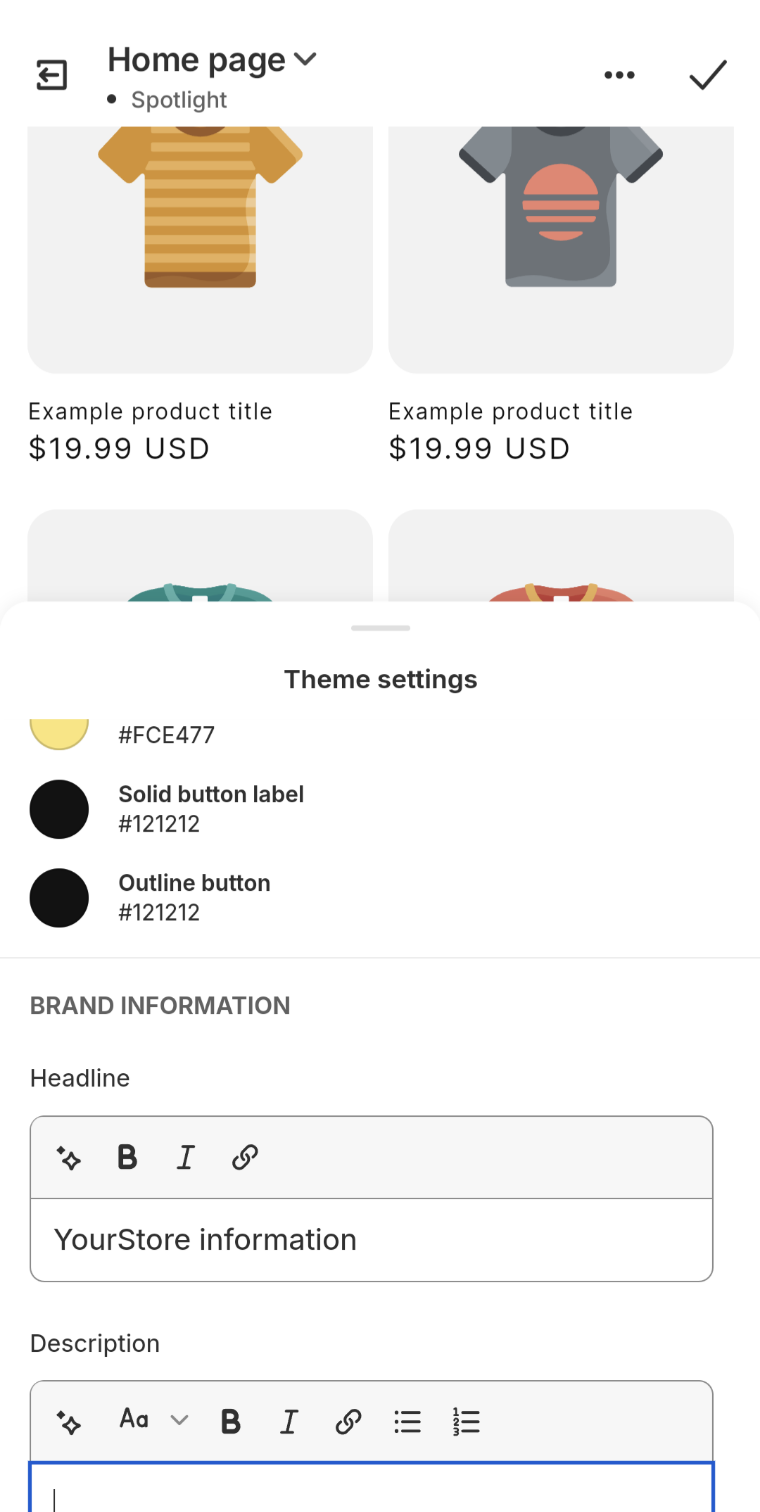

🏆
Winner: Shopify
. Shopify offers a dedicated mobile app with a user-friendly theme editor, allowing users to customize their online store directly from their mobile device. This feature enables the addition, removal, editing, and rearrangement of content on the store’s website, providing convenient on-the-go adjustments to the store’s appearance and layout.
Webnode, on the other hand, does not have a dedicated mobile editor app. Users can edit their website using the mobile browser version of the editor, but it comes with certain limitations. This makes it less convenient and flexible compared to Shopify’s mobile editing capabilities.
In summary, Shopify receives a higher rating due to its robust mobile app that supports comprehensive store management and customization, while Webnode’s mobile editing is limited to browser-based adjustments with fewer capabilities.
Product testing options
Product Testing OptionsAssesses the options for trying out platform features before commitment.Score Components:
- Trial quality (40%): Extent and usefulness of the trial or free version.
- Feature accessibility (30%): How many features are available to test.
- Trial duration (20%): Length of the trial period.
- Ease of transition (10%): Smoothness of moving from trial to paid plans.
 8.1
8.1
 5.3
5.3
Overall Result
:
Shopify Wins
. Shopify scores 8.1, offering a 14-day free trial with access to all features, while Webnode scores 5.3, offering a free plan with limited features. Shopify does not have a traditional money-back guarantee, but users can simply stop using the service after the trial period to avoid charges. Webnode, on the other hand, offers a 15-day money-back guarantee.

|

|
|
|---|---|---|
|
Free Plan |
No (14-day free trial) |
Yes |
|
Trial Duration |
14 days | No trial |
|
Testing Premium Features |
All features during free trial |
Some features with the free plan |
Price
PriceLooks at the cost-effectiveness and value for money of each platform.Score Components:
- Plan value (40%): What each pricing tier offers.
- Transparency and clarity (30%): Clearness of pricing structures.
- Flexibility of plans (20%): Range of options to suit different budgets.
- Hidden costs (10%): Additional expenses not included in the plan.
 8.2
8.2
 7.7
7.7
Shopify offers more value for money, especially for ecommerce, despite its higher price.

|

|
|
|---|---|---|
|
$0-$10 |
No offering at this amount. |
LIMITED ($5.50/month): Basic plan, 200 MB storage, attach domain, website statistics, up to 5 form fields, last 30 days backup. This plan allows to manage 1 website with unlimited number of pages. Value for Price: 3.0 |
|
$10-$20 |
No offering at this amount. |
MINI ($10.00/month): All essentials for a simple website, 1 GB storage, 3 GB bandwidth, website statistics, 1 email account. This plan allows to manage 1 website with unlimited number of pages. Value for Price: 4.5 |
|
$20-$30 |
No offering at this amount. |
STANDARD ($16.90/month): For starting an online store, 3 GB storage, 10 GB bandwidth, 20 email accounts, basic store features. This plan allows to manage 1 website with unlimited number of pages. Value for Price: 6.0 |
|
$30-$40 |
Shopify Basic ($29/month): Unlimited products, 2.9% + 30¢ card fee with Shopify payments, Extra 2% gateway fee without Shopify Payments, Abandoned cart recovery, Automated sales tax, Digital products, POS Integration, 2 staff accounts. Value for Price: 8.0 |
PROFI ($26.50/month): Professional websites, 7 GB storage, unlimited bandwidth, 100 email accounts, full online store capabilities. This plan allows to manage 1 website with unlimited number of pages. Value for Price: 7.5 |
|
$70-$80 |
No offering at this amount. |
BUSINESS ($34.90/month): Comprehensive e-commerce, 15 GB storage, unlimited bandwidth, 1000 email accounts, advanced online store features. This plan allows to manage 1 website with unlimited number of pages. Value for Price: 8.5 |
|
$200+ |
Shopify Standard ($79/month): Lower card fees (2.6% + 30¢), Gift cards, Professional reports, 5 staff accounts. Value for Price: 8.5 |
No offering at this amount. |
location. As a result in rare cases the prices displayed here can differ from the ones you see on their
websites.
Hosting quality
Hosting
qualityExamines the reliability and performance of the hosting solutions.Score Components:
- Uptime (40%): Consistency and reliability of website availability.
- Speed (30%): Loading times and performance.
- Bandwidth and storage (20%): Sufficiency of resources provided.
- Data centers (10%): Quality and distribution of hosting infrastructure.
 9.0
9.0
 6.3
6.3
Winner: Shopify
. Shopify outperforms Webnode in hosting quality, with a 99.99% uptime guarantee and five global data centers. Shopify’s hosting is included in all of their plans, offering unlimited bandwidth and storage. Webnode also offers hosting, but does not disclose its type or the locations of its data centers, and has a lower uptime of 99.6% with no uptime guarantee.

|

|
|
|---|---|---|
|
Do they offer hosting? |
Yes, included in all paid plans |
Yes, included in all paid plans |
|
Data Centers: |
5 globally: USA (Ashburn, Virginia; Santa Clara, California), Canada (Toronto, Ontario), Ireland (Dublin), and Singapore |
Webnode does not disclose the locations of its data centers |
|
Type of hosting: |
Proprietary cloud-based hosting |
Webnode does not disclose its hosting type |
|
Uptime: |
99.99% |
99.6% |
|
Uptime Guarantee: |
Yes, 99.99% |
No |
Website Speed Optimization
Website Speed OptimizationEvaluates optimization of website loading timesScore Components:
- PageSpeed Score (30%): Google’s score indicating performance optimization.
- Loading Time (30%): The average time until a website is fully interactive.
- Mobile Optimization (15%): Optimization effectiveness for mobile devices.
- Resource Optimization (15%): Optimizing images, scripts, and other heavy resources.
- CDN Usage (10%): Use of CDN to enhance speed across geolocations.
 7.8
7.8
 6.1
6.1
🏆 Winner: Shopify
Both Shopify and Webnode place a high priority on website performance and page speed, with Shopify focusing on app and theme optimization and Webnode emphasizing code minification, image optimization, and caching. However, Shopify gets the edge when it comes to website speed optimization due to its emphasis on Core Web Vitals improvements.

|

|
|
|---|---|---|
|
Focus |
App optimization, Theme optimization |
Code Minification, Image Optimization, Caching |
|
Performance Tools |
Google Lighthouse, PageSpeed Insights |
Not specified |
|
Key Strategies |
App efficiency, Theme optimization |
Code Minification, Image Optimization, Caching |
|
Load Times |
Varies widely, dependent on optimization |
Varies depending on optimization |
|
Page Speed Scores Range |
Scores vary; influenced by apps, images |
Varies depending on optimization |
|
Core Web Vitals Improvement |
Emphasis on LCP, FID, CLS improvements |
Not specified |
Shopify’s approach to enhancing site speed includes app optimization by removing unneeded app code, conditionally loading apps, avoiding immediate pop-up displays, and incorporating app functionality directly into themes. This approach leverages Shopify’s fast servers and CDN network to boost load speed. Shopify also suggests utilizing Google AMP for faster mobile page loads, although with some design compromises. Analysis of three Shopify sites showed a range of Shopify speed scores from 14 to 75, Google PSI scores from 8 to 80, and load times varying from 10.6 seconds to 2.3 seconds. Continuous maintenance and optimization are essential for keeping Shopify stores fast.
Webnode, on the other hand, focuses on code minification, image optimization, and caching for speed optimization. However, Webnode does not provide any information on their Core Web Vitals improvements, which are crucial for website performance and user experience. The load times and PageSpeed scores for Webnode vary depending on optimization, but no specific data is provided.
Get a head start on website creation with AI
Create a custom website tailored to your business needs 10X faster with 10Web AI Website Builder!
Plugins and integrations
Plugins and integrationsMeasures the range and effectiveness of additional plugins and integrations.Score Components:
- Variety of options (40%): Range of available add-ons.
- Integration smoothness (30%): Ease of integrating plugins into the site.
- Quality of plugins (20%): Functionality and reliability of the options.
- Custom integration capabilities (10%): Support for custom or third-party integrations.
 8.7
8.7
 6.8
6.8
🏆 Winner: Shopify.
With a score of 8.7, Shopify outperforms Webnode, which scores 6.8. Shopify offers over 8,000 apps in its App Store, covering a wide range of functionalities. These apps enhance ecommerce by offering advanced sales, marketing, and payment options, streamlined shipping, sophisticated inventory management, improved customer service, in-depth analytics, seamless accounting integration, creative store design, mobile app support, enhanced security, multi-channel selling, product review tools, dropshipping and print-on-demand support, language localization, and accessibility improvements.
On the other hand, Webnode supports a variety of plugins/integrations developed by Elfsight, aiming to enhance website functionality, improve user engagement, and drive conversions. These plugins, numbering over 70, cover a wide range of applications including social media, reviews, e-commerce, chats, and forms. However, the number and diversity of plugins offered by Shopify give it a clear advantage in this category.
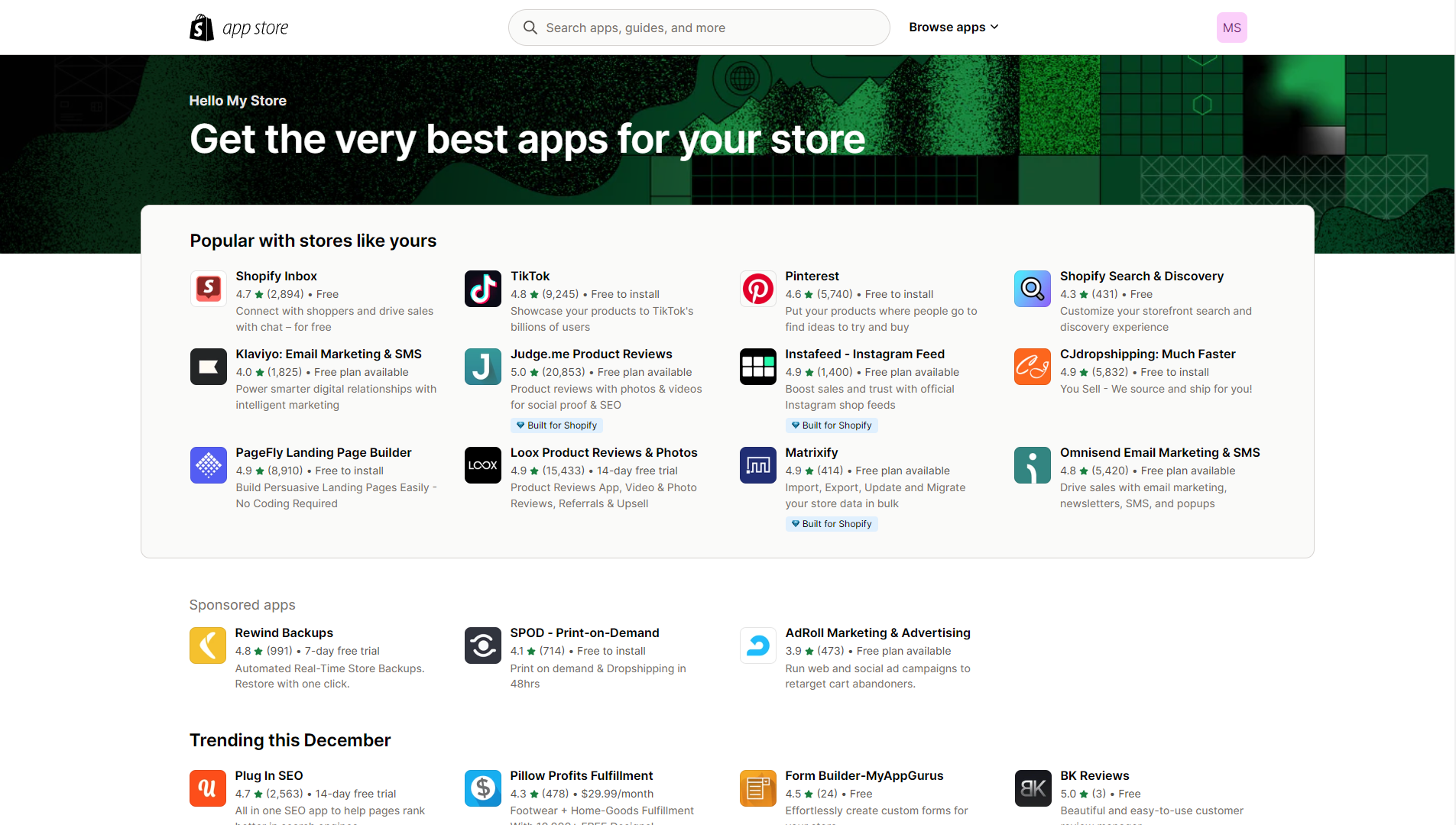

Marketing Features
Design FunctionalitiesRepresents how well each platform allows for creative design and customization of websites.Score Components:
- Template Variety (30%): Range and quality of design templates.
- Customization (30%): Flexibility and options for design alterations.
- User Interface (20%): Ease and intuitiveness of the design process.
- Responsiveness (10%): Adaptability to different devices and screen sizes.
- Innovation (10%): Unique design features and tools.
 8.8
8.8
 5.5
5.5
🏆
Overall Winner: Shopify
. Shopify stands out for its more advanced ecommerce-focused marketing tools, especially in analytics and ad campaign management. Webnode, while offering a range of marketing features, is more basic and suitable for users with some experience.

|

|
|
|---|---|---|
|
SEO Tools |
✓ |
✓ |
|
Email Marketing |
✓ |
✓ |
|
Blogging |
✓ |
✓ |
|
Social Media Integration |
Advanced integration for selling directly on social platforms |
Basic integration through third-party services |
|
Analytics and Reporting |
Detailed analytics for in-depth insights |
Basic analytics through external tools |
|
Ads and Promotions |
Google Ads integration; sophisticated ad campaign management |
Basic ad management and promotions |
Customer Support
Customer supportEvaluates the quality and availability of support options.Score Components:
- Response time (40%): Speed of support responses.
- Support quality (30%): Effectiveness and helpfulness of the support.
- Availability (20%): Range of support channels (phone, chat, email).
- Resource richness (10%): Quality of self-help and educational materials.
 8.6
8.6
 5.3
5.3
🏆 Winner: Shopify
. Comparing Shopify vs Webnode, Shopify stands out with its 24/7 customer support available through chat, email, and phone. Shopify’s extensive tutorials, active community forums, and valuable marketing blog further enhance the support experience, making it easier for users to find solutions and grow their businesses. Additionally, Shopify offers dedicated enterprise support with a range of specialized resources.
Webnode, on the other hand, provides customer support in over 20 languages, primarily through email, with a commitment to respond within 24 hours during weekdays. Premium users receive priority phone support, but the lack of general phone and live chat support, along with limited availability, makes it less comprehensive compared to Shopify. Webnode’s support is more suited for beginners looking for basic assistance rather than extensive, round-the-clock support.
Security
SecurityLooks at the platforms’ security measures and data protection.Score Components:
- Data protection (40%): Safeguards for user and customer data.
- SSL and encryption (30%): Implementation of secure connections.
- Compliance (20%): Adherence to industry security standards.
- Regular updates (10%): Frequency of security updates and patches.
 9.0
9.0
 7.7
7.7
🏆
Winner: Shopify
. Shopify’s security measures are more comprehensive than those of Webnode. Shopify prioritizes data privacy and security through rigorous measures, including secure infrastructure, encryption, and limited access. They comply with data privacy regulations, practice data minimization, and ensure user control and transparency. Additional security measures include two-factor authentication, regular audits, and a dedicated incident response team.
Webnode, on the other hand, offers a variety of security measures for websites, including a Premium Site Security add-on with IP Filters, Form Protection, and Malware Scanning for users with a Premium Plan. All Webnode sites are automatically secured with HTTPS, ensuring safe browsing for visitors. However, compared to Shopify, Webnode’s security measures are not as comprehensive.
AI Capabilities
AI capabilitiesMeasures the effectiveness of AI-driven features and tools.Score Components:
- Automation efficiency (40%): Impact of AI on streamlining processes.
- Personalization (30%): AI-driven customization for users or customers.
- AI-Assisted design (20%): Role of AI in website design and functionality.
- Data analysis (10%): Use of AI in interpreting user data and analytics.
 7.9
7.9
 5.3
5.3

|

|
|
|---|---|---|
|
AI Builder |
Shopify AI Builder offers a range of functionalities |
Webnode AI Builder streamlines the website creation process |
|
SEO Optimization |
AI-driven recommendations for better search engine visibility |
|
|
Customer Behavior Analysis |
Advanced analytics to understand customer preferences |
|
|
Sales Predictions |
AI-powered sales forecasting tools |
|
|
Inventory Management |
AI tools to assist in efficient inventory handling |
|
|
Content Generation |
AI-assisted content generation |
|
🏆 Winner: Shopify
. Shopify, with a score of 7.9, utilizes AI in a variety of ways to enhance the ecommerce experience. Its AI features focus on customer behavior analysis, personalized shopping experiences, inventory management, and sales predictions. Shopify’s AI is powerful and business-centric, offering a wide range of tools for online store management.
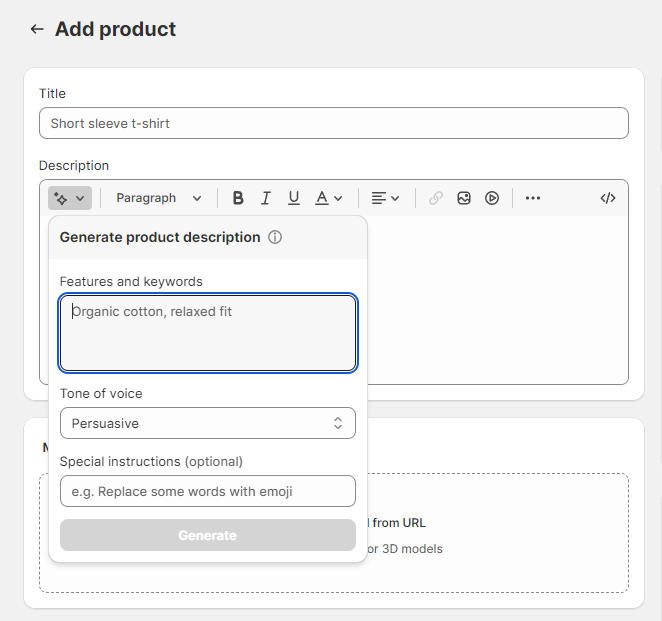
Webnode, scoring 5.3, has a more limited range of AI capabilities, primarily focusing on its AI-assisted builder. This tool helps streamline the website creation process, making it accessible and efficient for users regardless of their technical expertise. However, it lacks other AI features such as content generation and ecommerce tools.
User Management
User ManagementAssesses the platforms’ capabilities in managing user roles, permissions, and accessibility.Score Components:
- Role Customization (40%): Flexibility in creating and defining user roles and
permissions. - Ease of Management (30%): User interface and tools for managing users.
- Access Control (20%): Effectiveness of access control measures for different user
levels. - Scalability (10%): Ability to manage a growing number of users efficiently.
 6.5
6.5
 6.9
6.9
🏆 Winner: Webnode
. Both Shopify and Webnode offer user management capabilities, but Webnode’s flexibility in user roles and permissions gives it a slight edge.
-
Shopify enforces staff account limits based on plans, ranging from 2 to 15, with Shopify Plus offering unlimited
accounts. Collaborators with limited access are also an option. - Webnode allows multiple users to manage and edit a website, but the exact number vary depending on the subscription plan you choose. Generally, the free version of Webnode provides limited user access for management and editing, while premium plans offer more flexibility, including the ability to add multiple users with different roles and permissions.
Shopify User Roles and Access Levels:
| Role | Description | Access Highlights |
|---|---|---|
| Store Owner | Full control over store | Manage products, orders, discounts, payments, apps, settings. Create and manage staff accounts. |
| Staff | Configurable access by owner |
Add/edit products, manage orders, fulfill orders, manage customers, update content. Access level can be customized by the owner. |
| Collaborator | Limited access for external partners | View and manage specific sections like blog or product categories. Cannot access full store settings. |
Webnode User Roles and Access Levels:
| Role | Description | Access Highlights |
|---|---|---|
| Website Owner | The individual or entity that owns the Webnode website. | Full access: can modify site structure, design, content, and manage user roles. |
| Administrator | Users with administrative privileges assigned by the website owner. | Nearly full access, including content management, and some settings adjustments. |
| Editor | Users tasked with creating, editing, and publishing content. | Access to add and edit content, blog posts, and pages, but cannot alter design. |
| Contributor | Users who can contribute content but cannot publish it. | Can draft content but need approval from an Editor or Administrator to publish. |
| Viewer/Visitor | Individuals who visit the website without any editing permissions. | Can view the public website and interact through comments or contact forms. |
| E-commerce Manager | Specifically for websites with an e-commerce component, managing products. | Can add, edit, and manage products, orders, and customer interactions. |
Additional Features

|

|
|
|---|---|---|
|
SSL Certificate |
✓ |
✓ |
|
Custom Domain |
✓ |
✓ |
|
Free Custom Domain Included |
X |
✓ |
|
International Domains |
✓ |
✓ |
|
Mobile Responsive |
✓ |
✓ |
|
Page Speed |
✓ |
✓ |
|
Website Builder Mobile App |
✓ |
X |
|
Convert a Website To An App |
X |
X |
|
Website Analytics |
✓ |
✓ |
|
Multilingual Sites |
✓ |
✓ |
|
Multiple Users |
✓ |
✓ |
Shopify vs Webnode: User Feedback
Shopify’s slightly higher rating on G2 Crowd can be largely attributed to its specialization in ecommerce. Its comprehensive features, ease of use, and robust customer support cater specifically to online businesses, leading to high user satisfaction among those seeking a dedicated ecommerce solution.
User feedback on Webnode highlights its ease of use, rapid website creation capabilities, and the wide range of templates available, making it a popular choice for individuals and businesses seeking an intuitive web development platform. While praised for its user-friendly interface and quick setup, some users express a desire for more flexibility and customization options, especially in themes and e-commerce features.
The making of this blog
We followed a clear, step-by-step process to write and research this article.
Shopify vs Webnode: FAQ
Which platform is better for beginners, Shopify or Webnode?
Can I use both Shopify and Webnode for selling products online?
How do Shopify and Webnode differ in terms of customization and design flexibility?
What are the major differences in pricing between Shopify and Webnode?











